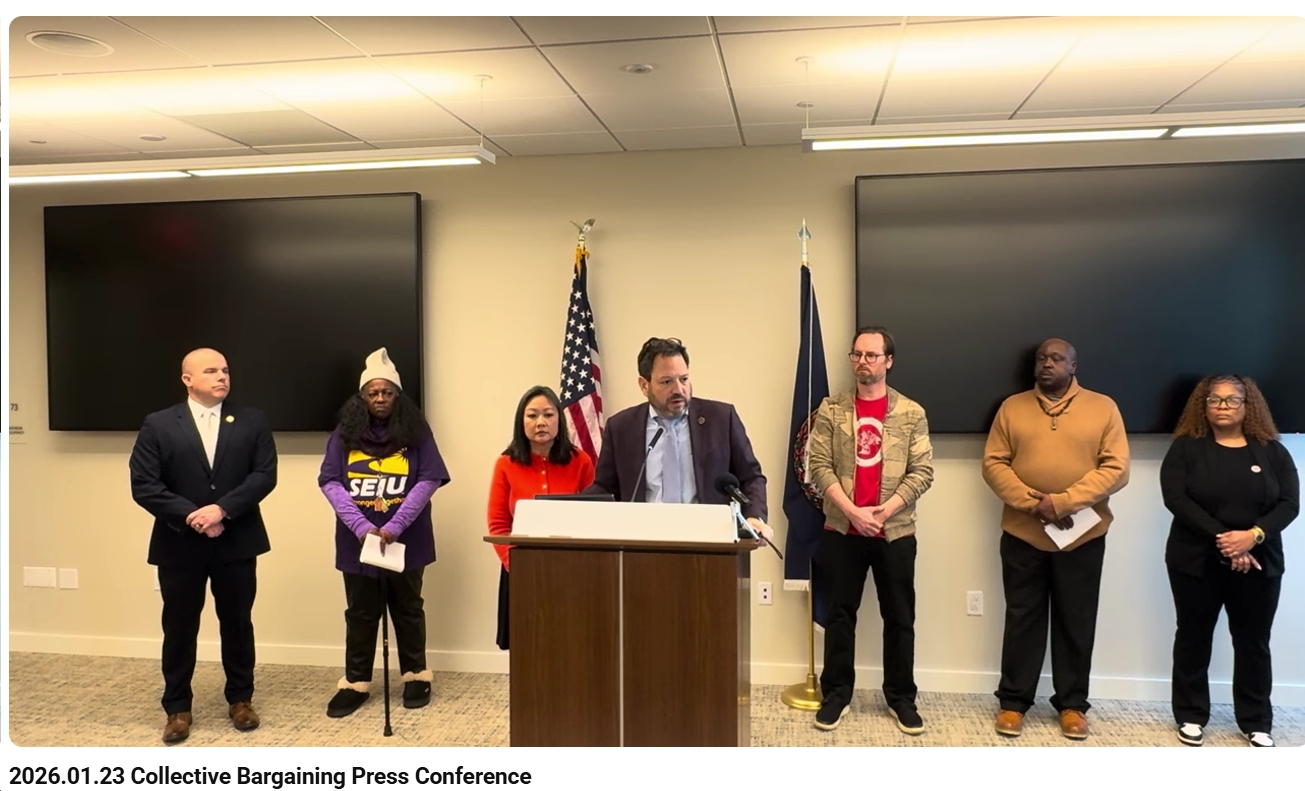by Jonathan Sokolow
On October 24, 120 drivers and garage workers at the Cinder Bed Bus Garage in Lorton, Virginia went out on strike against Transdev, a French transit company that operates the garage under contract with the Washington Metropolitan Area Transit Authority (WMATA). The workers are represented by Local 689 of the Amalgamated Transit Union (ATU).
Almost one month later, they are standing strong and gaining allies across Virginia.
This is the first transit strike in the Washington DC region since 1978. It was called after negotiations, which had been going on since February, failed to produce a contract. Transdev walked away from the bargaining table in what appears to be an effort to bust the union, which organized the Cinder Bed facility last year.
In 2018, WMATA contracted out the routes operating from Cinder Bed – approximately 5% of the routes in the MetroBus system. The Washington Post noted that WMATA did so “in an effort to keep costs down.” Translated: Transdev is seeking to maximize profits at the expense of workers – and the riding public.
On November 4, ten members of the Virginia General Assembly – Delegates Kathy Tran, Mark Sickles, Vivian Watts, Paul Krizek, Kaye Kory, Mark Levine, Patrick Hope, Mark Keam, Ibraheem Samirah and Elizabeth Guzman – sent a letter of support for the strike to Paul Weidefeld, General Manager and Chief Executive Officer of WMATA. The delegates said that “Transdev’s business practices…impact the safety of bus services…and result in unfair pay and benefits for its workers.” They noted that “by privatizing bus services” at Cinder Bed, “WMATA has created unequal transit systems.” The delegates said that “attempts to break the strike further perpetuate a two-tiered transit system.” And they added:
“Transdev workers are paid $12 an hour less and do not receive affordable health care plans or pensions when compared to WMATA drivers. Transdev workers also have inadequate bathroom breaks, sometimes having to wait 12 hours before taking a break. Further, Transdev uses buses that are older than those used by WMATA, which raises concerns about safety.”
ATU International President John Costa put it more bluntly:
“The Cinder Bed workers have walked off the job because they’ve had enough. They are fed up with being used as pawns for austerity-minded politicians that want to ‘cut costs’ on the backs of workers and riders while Transdev is raking in profits off their low wages.”
On Saturday, November 16, Local 689 brought the fight to Fairfax City, staging a spirited rally and march. They were joined by many allies, including the Service Employees International Union, Fairfax Education Association, United Food and Commercial Workers, International Brotherhood of Electrical Workers and the Carpenters Union.
Dranesville District Supervisor John Foust told the crowd that when WMATA decided to privatize a portion of its service to a company with a history of exploiting its workforce, it was completely predictable that Transdev would seek to maximize profits by cutting wages and benefits. But, Foust noted, Transdev failed to anticipate that the drivers would fight back and that they would have strong support in the community.
Providence District Supervisor Elect Dalia Palchik told the rally that she grew up depending on public transit because her family, which lived on a $20,000 per year salary, could not afford to buy a car. She told the crowd that “transit is a civil right.”
Virginia Diamond, President of the Northern Virginia AFL-CIO gave a fiery speech, warning that today it is 120 workers on strike, but that on November 30 Metro’s contract with 600 Fairfax Connector bus drivers expires. And she noted that 8,000 Metro workers – those who operate the entire metro system in the DC/Maryland/Virginia area – stand prepared to join the action.
In fact, Fairfax Connector workers already have voted to authorize a strike against Virginia’s largest bus system. Those workers could go on strike at any time, which would, as the Washington Post observed “paralyze commutes in Northern Virginia.”
As I listened to the speakers at the Fairfax rally, I thought back to other transit worker picket lines I have joined over the years in Michigan and in New York. The public depends on mass transit to move us. In turn, we need these workers to be treated with dignity and respect. We need transit to be fully staffed so that there are no short cuts when it comes to maintenance and other services. We need to recognize that transit workers are a vital part of our lives and of our economy and, for that reason, their fight is our fight.
This is even more so these days, when we are slowly coming to grips with the fact that we are in a climate emergency. Among the marchers on November 16 were many activists from the environmental movement in Northern Virginia. The reason is simple. Automobiles are a prime contributor to the warming of our planet. We need massive investments in public transportation as part of a transition away from a fossil fuel-based economy. We need more trains, including high speed rail. We need buses that run on electricity – not gasoline or fracked methane. And we need a Green New Deal that addresses the intersecting crises of poverty, inequality and the looming climate catastrophe to make sure that the transition to a green economy is a just one, leaving no worker or community behind.
And for all of these things, we need a strong, robust and revitalized union movement in Virginia.
So if you like your weekends, thank a union member.
If you enjoy getting overtime pay when you work more than 40 hours in a week, thank a union member.
And if you want safe, plentiful and reliable mass transit as part of a just transition to a green economy, support the workers of ATU Local 689 in their fight for a decent contract and safe working conditions.
Here are some ways you can help:
- Download and print this sign. Use it to take a photo of yourself and your friends and co-workers. Post on Twitter and tag @wmata @wmataforward @atulocal689. Post on Facebook and tag @atulocal689group.
- Watch and share this excellent music video produced by ATU. “Don’t Play with My Money, Don’t Play with My Family!!”
- Write the WMATA Board of Directors at boardofdirectors@wmata.com and tell them you stand with the workers of Local 689.
- Donate to the ATU Local 689 Strike Fund.
- Join the workers on the picket line.
This fight is our fight. This fight is now!

![[UPDATED: VA Senate Dems Pass $15/Hour Minimum Wage Bill] VA House Democrats Pass Top Priority, Paid Sick Leave](https://bluevirginia.us/wp-content/uploads/2026/02/housedemspaidsick.jpg)














